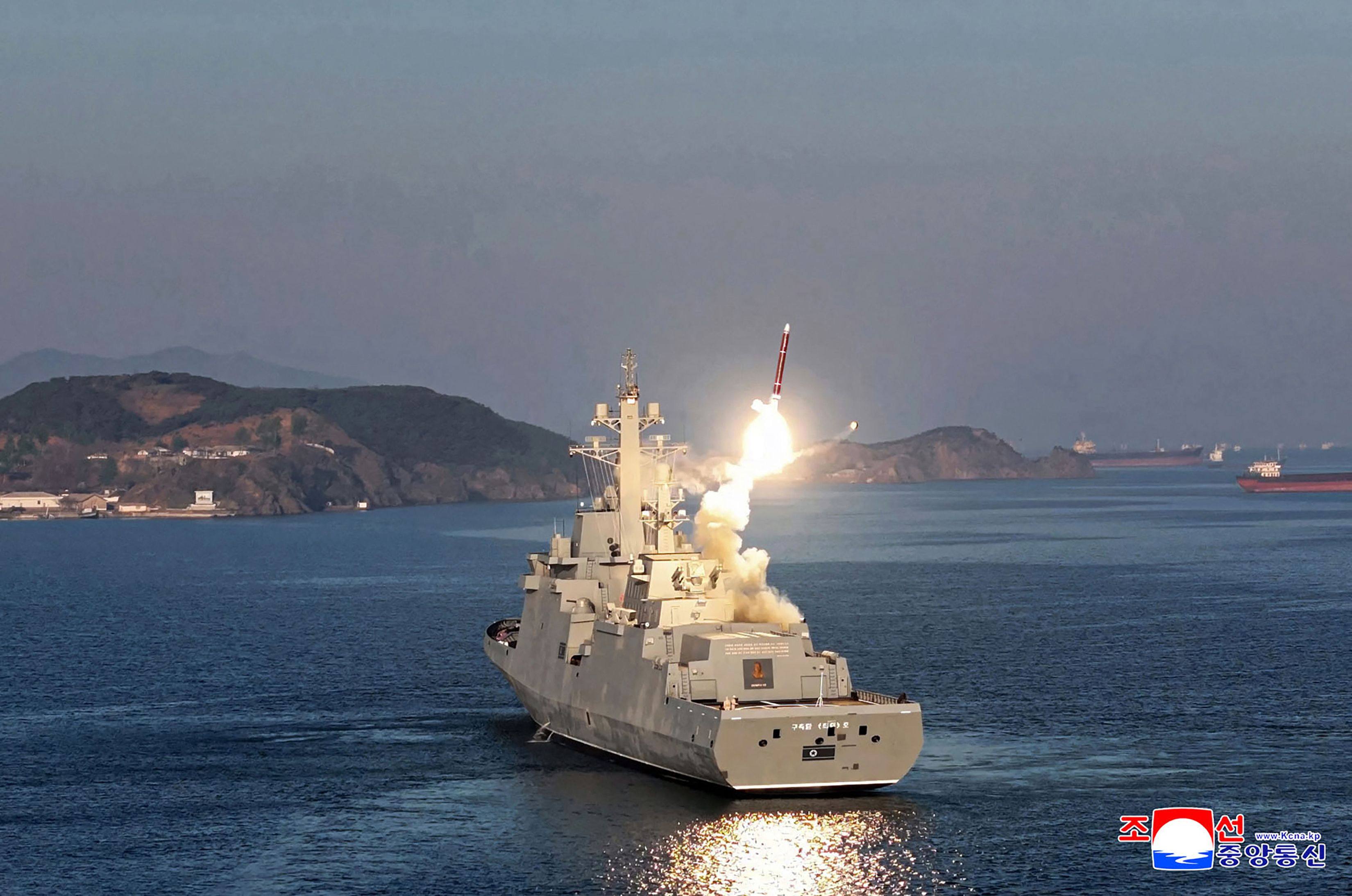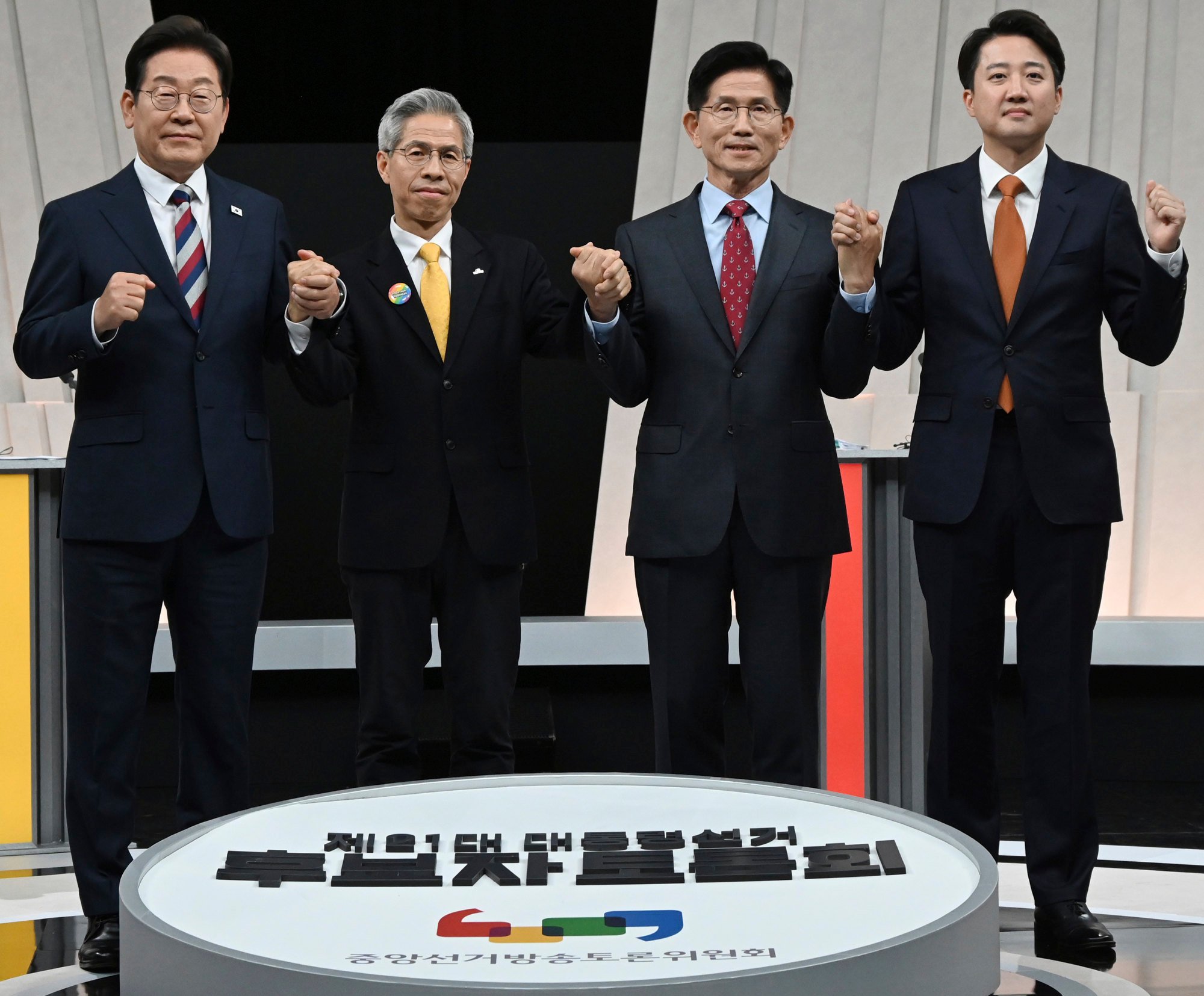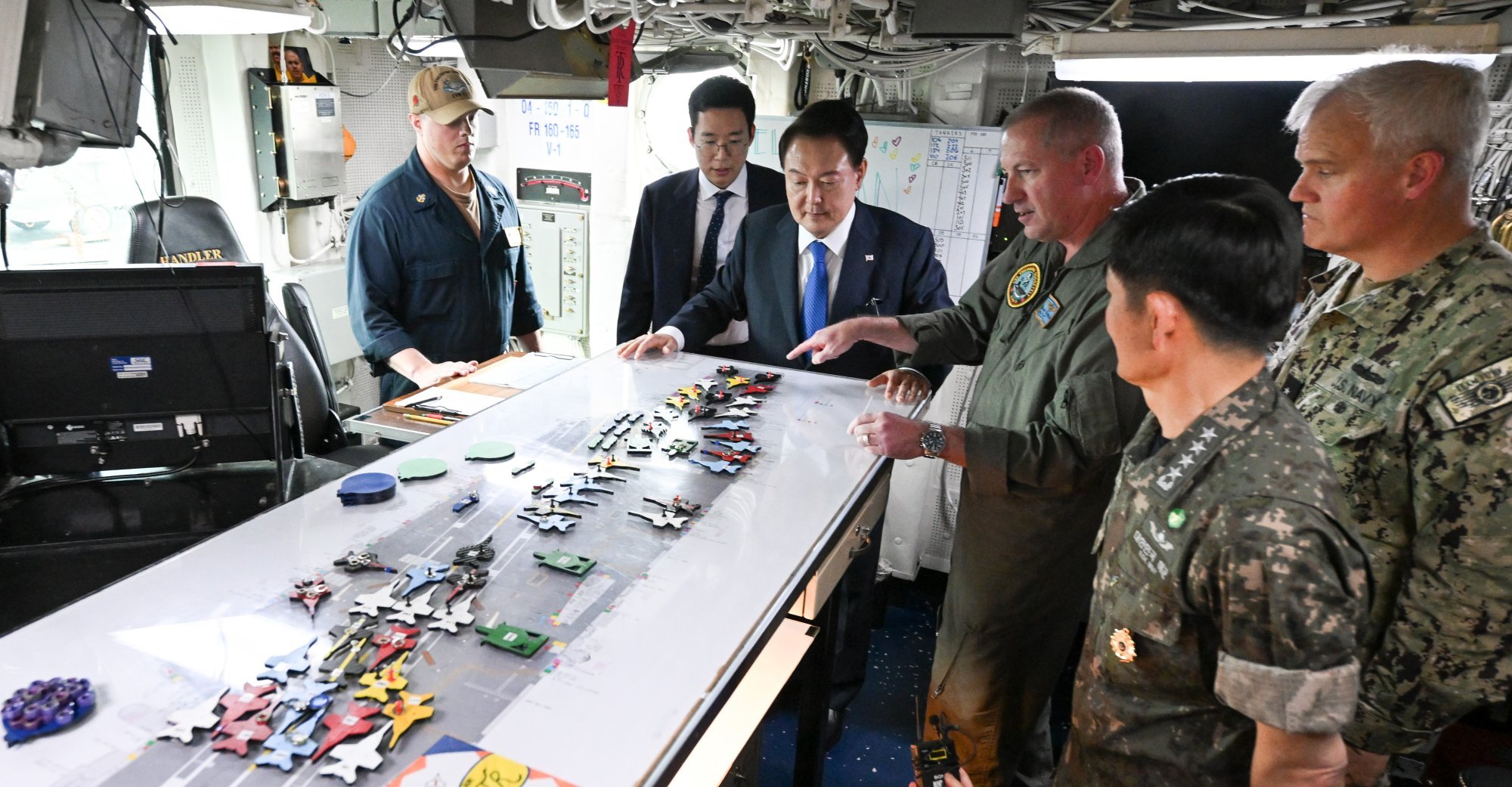Call to arms? South Korea’s election revives debate on nuclear armament
The debate underlines Seoul’s deep-seated anxiety about relying solely on the US nuclear umbrella amid North Korea’s advancing capabilities

Nuclear armament has re-emerged as a hot-button issue in South Korea’s presidential race, but analysts warn that the costs could far outweigh the benefits.
The debate has resurfaced in the lead-up to the country’s snap presidential election on June 3, as tensions with Pyongyang escalate.
It took centre stage during the final televised presidential debate on Tuesday night, where Lee Jae-myung, the Democratic Party of Korea (DPK) front-runner, clashed with his conservative rival, Kim Moon-soo of the People Power Party (PPP), over the possibility of South Korea pursuing nuclear weapons.
“Do you still believe South Korea should arm itself with nuclear weapons?” Lee asked.
Kim responded: “The South Korea-US alliance is the most important pillar of our security. If pursuing nuclear armament is possible within the framework of that alliance, we should consider it.”

Lee condemned the idea as reckless, arguing that hosting US tactical nuclear weapons or pursuing nuclear-sharing agreements would violate US policy and international norms, including the Non-Proliferation Treaty that South Korea ratified in 1975.
“If tactical nukes return to the Korean peninsula, how can we credibly demand denuclearisation from North Korea? Isn’t denuclearisation a fundamental national policy?” Lee asked.
Kim countered by arguing that nuclear sharing remained feasible through diplomatic engagement with the United States.
“There are different models we can consider – like Nato’s nuclear sharing arrangement or a uniquely Korean framework,” he said. “These could be explored through summit-level trust-building and negotiation.”
The US withdrew its tactical nuclear weapons – estimated at around 100 – from South Korea in the early 1990s to support inter-Korean reconciliation.
More recently, under former president Yoon Suk-yeol, Seoul attempted to achieve a nuclear-sharing arrangement with Washington but failed.
Instead, in 2023, South Korea secured an enhanced commitment to US “extended deterrence”, including nuclear capabilities, to defend its ally.
As part of this strengthened alliance, the two countries launched the Nuclear Consultative Group, a bilateral mechanism intended to bolster Seoul’s confidence in US deterrence amid North Korea’s advancing nuclear arsenal.
However, there has been growing uncertainty about US commitment to extended deterrence – such as more frequent deployments of nuclear-capable naval and air force assets to the Korean peninsula – under the budget-cutting agenda of President Donald Trump’s administration.
Doo Jin-ho, a senior researcher at the Korea Institute for Defence Analyses, dismissed talk of developing domestic nuclear weapons as political theatre aimed at galvanising conservative voters.
“Public support for nuclear armament is rising, largely due to mounting anxiety over North Korea’s growing nuclear capabilities,” he told This Week in Asia.
“People are increasingly sceptical that the US would risk its own homeland in retaliating against a North Korean nuclear strike on the South.”
However, Doo noted that conservative politicians were also aware of the severe diplomatic and economic repercussions of such a move.
“They know it’s not a viable option. Pursuing nuclear weapons would trigger harsh international sanctions and severely damage South Korea’s trade and global standing,” he said. “Talk of going nuclear is election-year rhetoric.”
Talk of going nuclear is election-year rhetoricDoo Jin-ho, a defence analyst
The redeployment of US tactical nuclear weapons was also likely to meet domestic resistance, Doo said.
“Imagine learning that US nuclear weapons will be stationed near your hometown,” he said. “Public opposition – what we call a ‘Not in My Backyard’ or ‘Nimby’ response – would be fierce.”
South Korea was already struggling to find new sites for storing spent nuclear fuel due to strong local opposition, he said, highlighting the practical hurdles in pursuing any form of nuclear armament.
Increased defence
The country was added to the US Department of Energy’s list of sensitive countries in January, following a period of political turbulence triggered by Yoon’s short-lived martial law decree on December 3, according to officials.
This move coincided with growing domestic debate over the need for an independent nuclear deterrent, despite South Korea remaining under the protection of the US nuclear umbrella.
In January 2023, Yoon publicly suggested that Seoul might consider redeploying US tactical nuclear weapons or even developing its own nuclear arsenal.
It was highly unlikely that Washington would allow South Korea to pursue its own nuclear weapons, however, said Koh Yu-hwan, a North Korean studies professor at Dongguk University.
“I don’t see any strategic value in reintroducing US tactical nuclear weapons to the South,” Koh said. “It would duplicate extended deterrence moves and risk provoking China.”

Instead, he suggested that South Korea could strengthen its defence posture by fortifying its advanced conventional arms and shipbuilding industries – integrating them with US nuclear strategy through a “division of labour” approach.
DPK’s Lee has pledged to enhance the country’s “Kill Chain” system, aimed at pre-emptive strikes against adversaries’ ballistic missiles and weapons of mass destruction.
South Korea might also seek US approval to develop and operate facilities to reprocess spent nuclear fuel – ostensibly for nuclear power plants and nuclear-powered submarines, said Chang Yong-seok, a senior researcher at the Institute for Peace and Unification at Seoul National University.
However, such facilities could also be used to extract fissile material, raising concerns over potential weaponisation.
“South Korea wants to possess nuclear potential similar to Japan,” Chang said, referring to Japan’s large plutonium stockpiles and its latent capacity to quickly develop nuclear weapons if necessary.